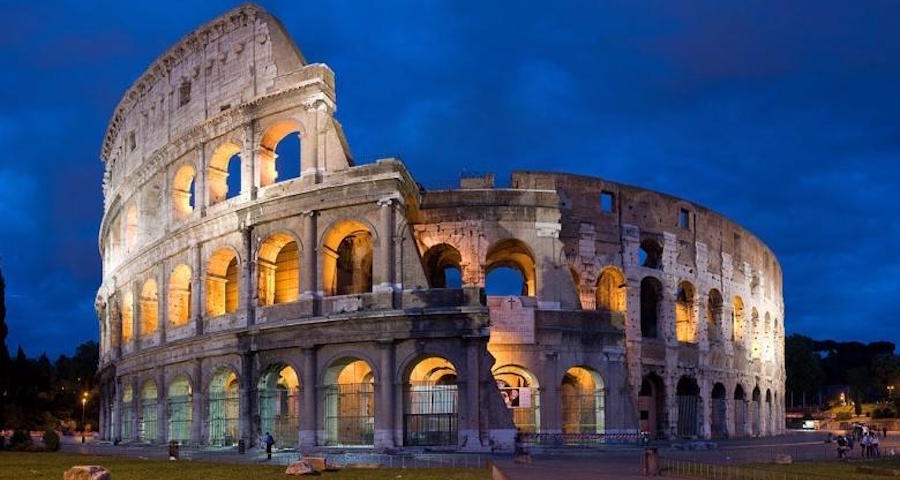 The topic for discussion has nothing much to do with mechanics of the Internet game of the same name, although it does in lawyer speak touch and concern the above subject. Wikipedia has a most interesting definition of what an empire is. It states: “An empire is a sovereign state functioning as an aggregate of nations or people that are ruled over by an emperor or another kind of monarch. The territory and population of an empire is commonly of greater extent than the one of a kingdom.”
The topic for discussion has nothing much to do with mechanics of the Internet game of the same name, although it does in lawyer speak touch and concern the above subject. Wikipedia has a most interesting definition of what an empire is. It states: “An empire is a sovereign state functioning as an aggregate of nations or people that are ruled over by an emperor or another kind of monarch. The territory and population of an empire is commonly of greater extent than the one of a kingdom.”
So how does this relate to the topic? At the turn of the 20th Century the world was dominated by European empires. Even the United States had its empire, and it still does, if one considers that the US has dependencies in this region – Puerto Rico, US Virgin Islands and Guantanamo Bay in the island of Cuba, American Samoa in the Pacific and many others around the globe.
This led to an interesting discussion last Saturday night among a group of old scholars of our alma mater. One of the topics was the unequal treatment that we small countries receive from the more powerful ones on this planet we call earth. How this treatment relates to the age of empires will become apparent as we continue to read.
Empires were formed as a result of the need of a country to protect its physical space from invasion, the need for resources to exploit and markets for goods and services. The fact that these entities no longer exist as political states, was as a result of the two world wars which were fought between 1914 and 1945. The conflict at its core, I suspect, was for the control of the resources and market globally.
As a result of the breakup of these European empires, new nations in Europe, Asia and the Americas were formed. The political independence of the newly created entities did not always translate into economic independence, which many of these new nations aspired to.
Why not, one may ask? Well, it is because the trading, cultural and economic links forged by these empires were all but impossible to break. This is particularly so in the English-speaking Caribbean. This region’s economic history was forged through commercial agriculture and slave labour for three centuries, as well as exploitation of the labouring classes and repression of citizens’ rights by an oppressive oligarchy during the post-emancipation period until the 1930s.
The foregoing is interesting but how does this relate to twenty-first century reality? The world has seen the formation of massive trade blocks since 1990. The European Union is perhaps the first trade block that may form a supranational political entity. We also saw the formation of North American Free Trade Area (NAFTA), MERCOSUR a trade bloc encompassing South American nations and the ANDEAN pact. In our region, we have the Caribbean Common Market. These have had varying degrees of success for those nations involved. Coupled with the formation of these regional trade blocs was the formation of the World Trade Organisation. This body was ostensibly created to reduce or eliminate the barriers to free trade globally.
The question for me, and others I believe, is how the formation of these trade blocs benefited the nations of the Americas in particular. We in the region have seen a decline in our economic performance over the past generation. Our entry into new spheres of economic activity, such as offshore financial services has been subjected to assaults by the Organisation of Economic Cooperation and Development (OECD), who claim that our offshore financial services constitute unfair tax competition.
Furthermore, the demand by the Financial Action Task Force (FATF) that we regulate our financial sectors to be in compliance with international standards, which caused a raft of Anti-Money Laundering and Financing of Terrorism legislation in the region, has imposed high compliance costs onto our financial sector compliance regimes. To the independent observer, it may suggest that keeping such countries in such a state of economic underdevelopment, allows developed countries to re-impose the fetters of colonialism, which our parents fought to get out of. In addition, the heavy penalties imposed by regulators in industrialised countries on their banks which operated in the region, has resulted in them cutting off correspondent banking relationships with domestic banking institutions in the Caribbean (de-risking).
So how does this translate into the subject of this article? The formation of trade blocs represents the new empires of our age. They dictate how international trade and finance is to be conducted, where and how resources are to be allocated, what areas of economic activity small open economies will pursue and who we will trade with.
Edward Hunte is an attorney-at-law who holds an MBA with concentrations in Economics and Finance; he was also an Economist in the Economic Affairs Division of the Ministry of Finance.




